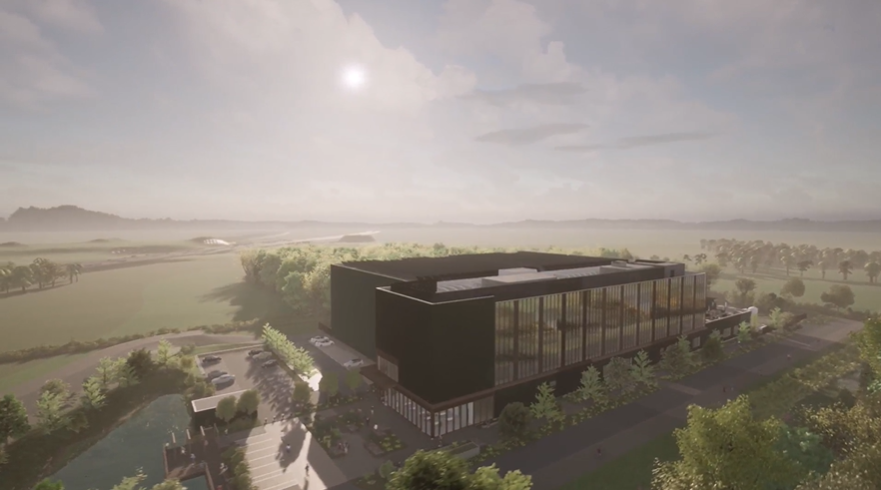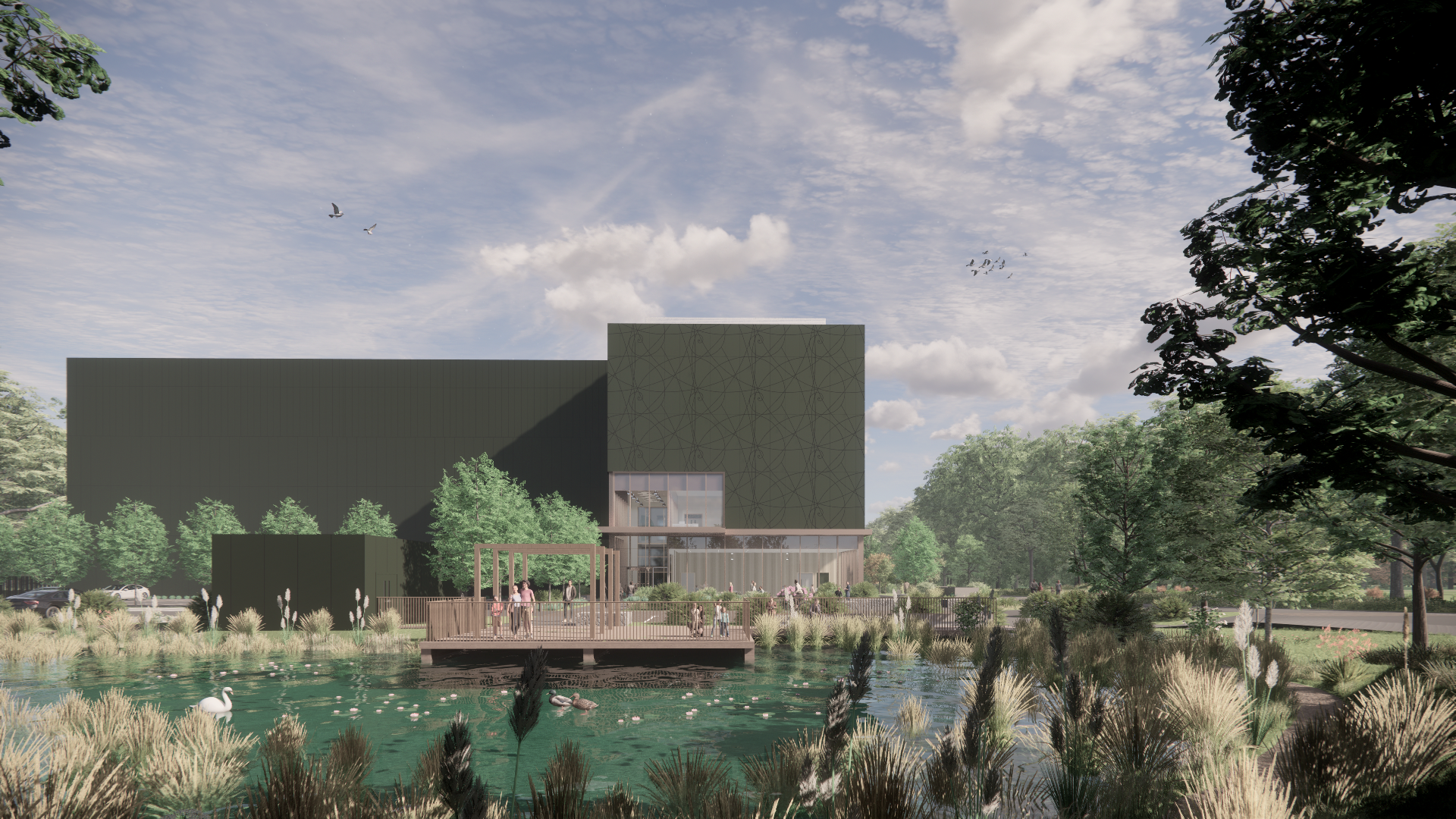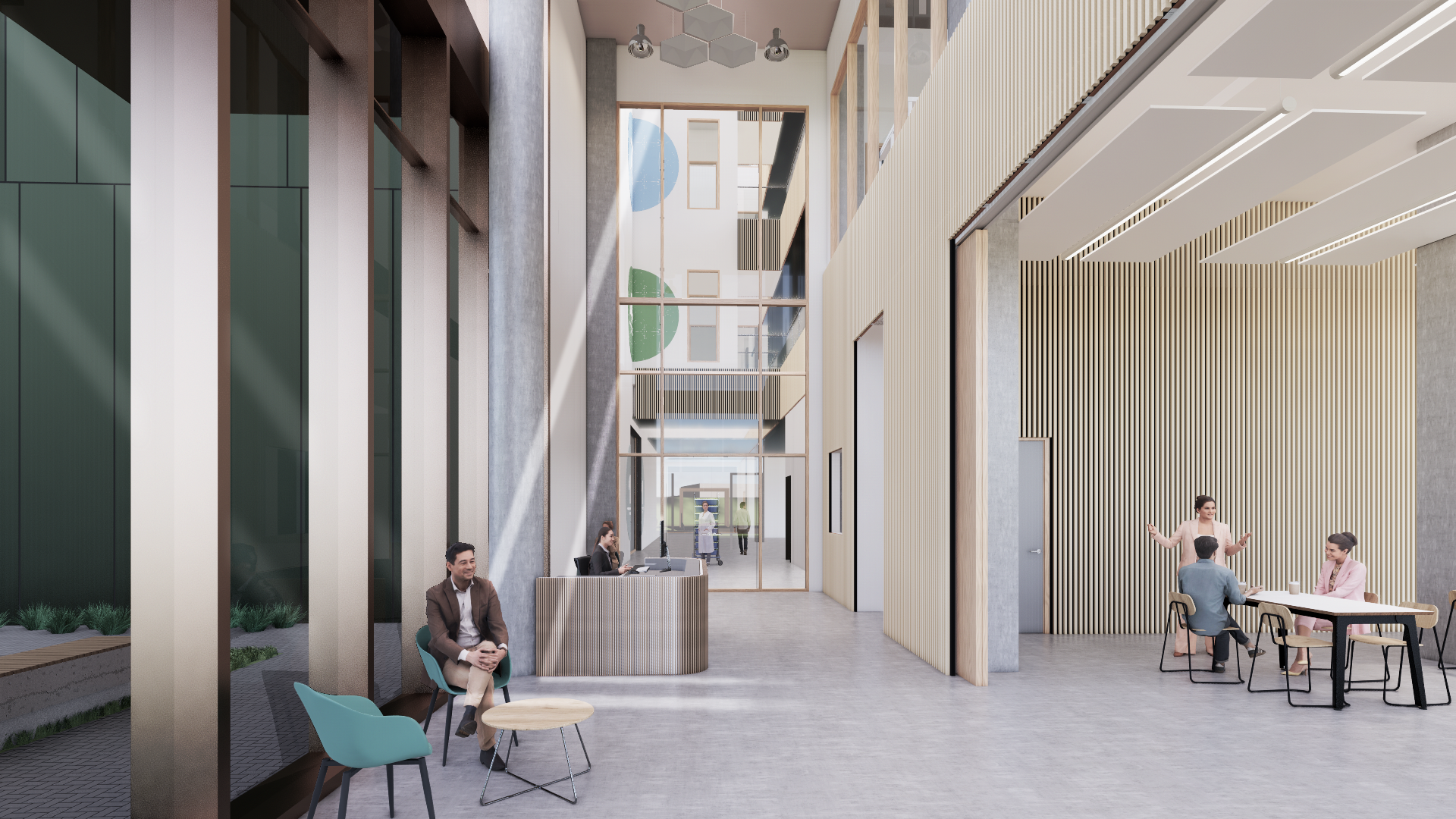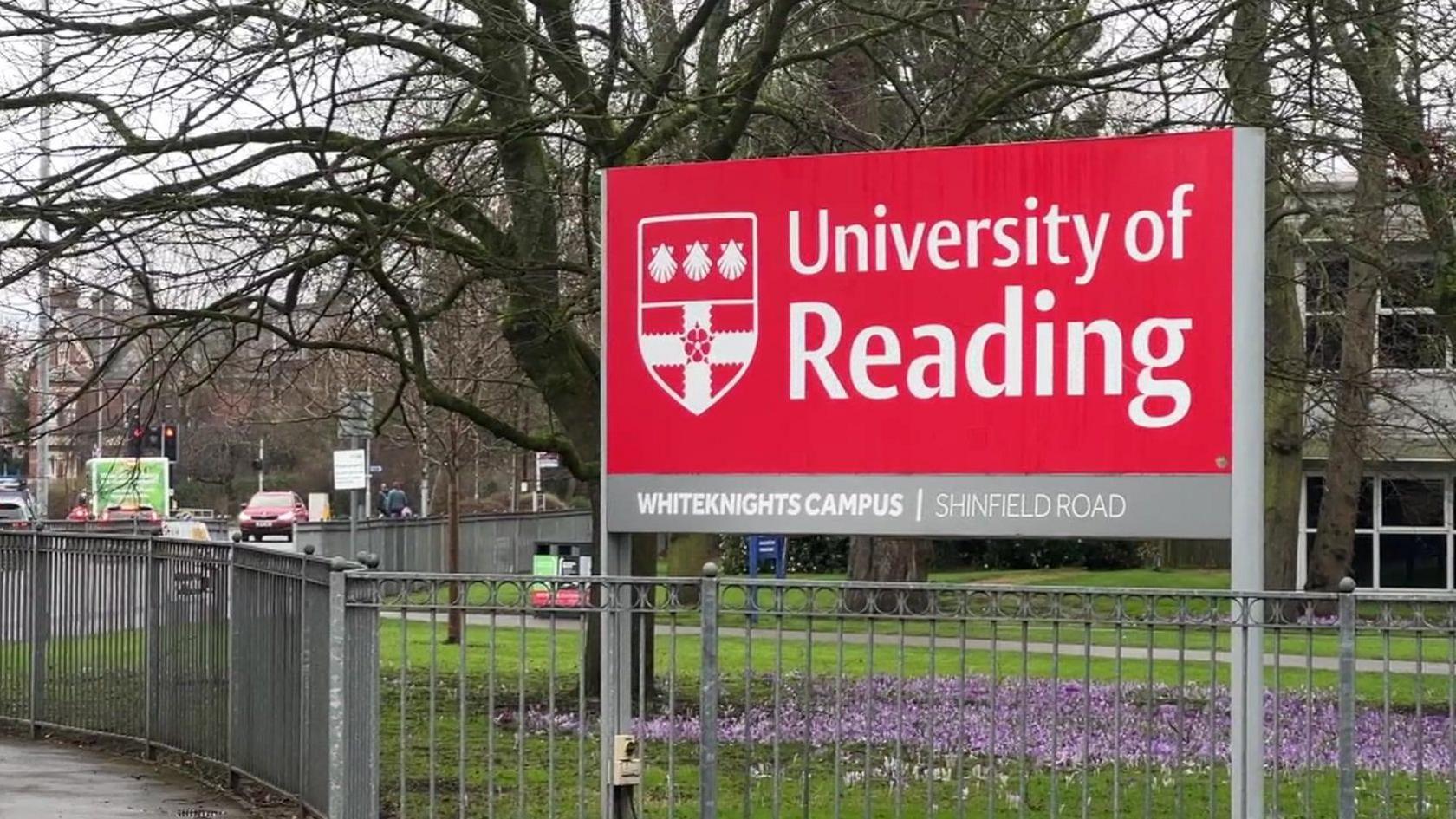Natural History Museum centre approved

Wokingham Borough Council granted planning permission for the Natural History Museum's centre
- Published
Planning permission has been granted for a new storage and research building for London's Natural History Museum (NHM).
Wokingham Borough Council approved planning permission for the museum's new collections, research and digitisation centre, which will be home to 28 million specimens.
The development will begin early next year at Thames Valley Science Park, Reading.
Executive director of science at the museum, Tim Littlewood, said: “This new site will enable us to secure irreplaceable collections in a purpose-built facility.”

The planned facility will be nestled in woodland in Reading
The project has received £201m of funding from the government as part of a priority to increase investment in science.
The building, which will provide will be 25,000 sq m (270,000 sq ft) of space, is expected to be completed by 2027 and operational by 2031.
It will be equipped with cutting-edge laboratories, workspace for museum scientists and purpose-built storage, NHM said.
Transporting millions of specimens to Shinfield will be the largest move of natural history specimens globally, and equates to about a third of NHM's collection.
The move will also free up 16% more gallery space at the museum in South Kensington.

The centre will be home to 28 million specimens
The new centre will be home to the museum’s collection of mammals, non-insect invertebrates - such as corals, crustaceans, molluscs and worms - fossilised mammals and invertebrates, molecular collections and micropalaeontology.
The facility will include an imaging and analysis centre with digitisation suites, state-of-the-art molecular biology laboratories with ancient DNA labs, cryo-facilities for tissue storage, conservation labs and specimen preparation labs with quarantine facilities.
Mr Littlewood said: “The museum’s new facility will improve collections access, physically and digitally to the scientific community.
“We are working in partnership with the University of Reading to drive forward scientific innovation and translate research into action against the planetary emergency".
Follow BBC South on Facebook, external, Twitter, external, or Instagram, external. Send your story ideas to south.newsonline@bbc.co.uk, external.
- Published17 February 2024
